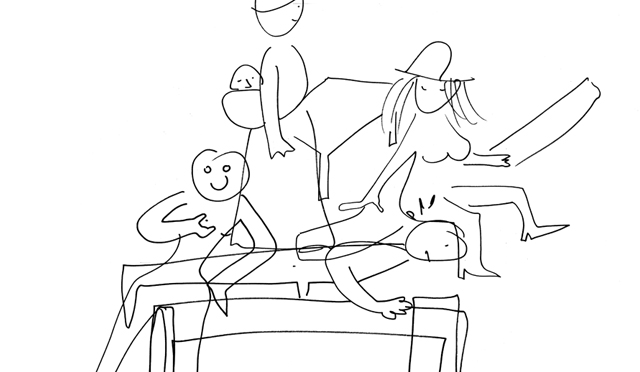Search
To search for an exact match, type the word or phrase you want in quotation marks.
A*DESK has been offering since 2002 contents about criticism and contemporary art. A*DESK has become consolidated thanks to all those who have believed in the project, all those who have followed us, debating, participating and collaborating. Many people have collaborated with A*DESK, and continue to do so. Their efforts, knowledge and belief in the project are what make it grow internationally. At A*DESK we have also generated work for over one hundred professionals in culture, from small collaborations with reviews and classes, to more prolonged and intense collaborations.
At A*DESK we believe in the need for free and universal access to culture and knowledge. We want to carry on being independent, remaining open to more ideas and opinions. If you believe in A*DESK, we need your backing to be able to continue. You can now participate in the project by supporting it. You can choose how much you want to contribute to the project.
You can decide how much you want to bring to the project.
On Thursday Ángel Calvo Ulloa wrote about Pop Politics at the CA2M and indicated that the exhibition took as its point of departure the Charles Manson massacre in the house of Polanski which in an orgy of blood ended the life of, amongst others, his pregnant wife, Sharon Tate. At the beginning of the eighties Charles Mason was in effect a reference for the end of the hippy utopia, that various post-punk bands and No Wave recuperated. Let’s remember two of them that refer explicitly to this time:
The live concert of Siouxsie & The Banshees, that they released on the album “Nocturne” in 1983, in which they did a cover version of the Beatles’ song “Helter Skelter”. The title of this song appeared written in blood on the walls of the Polanski house and formed the title for a television series about the massacre. (Note: the guitarist for “Helter Skelter” was Robert Smith of The Cure)
And the song Death Valley 69 by Sonic Youth and Lydia Lunch from 1985 that makes explicit reference to the massacre of Charles Mason.

A*DESK is a critical platform focused on publishing, training, experimentation, communication and dissemination in relation to contemporary culture and art, which is defined by transversality. The starting point is contemporary art, because that is where we come from and this awareness allows us to go much further, to incorporate other disciplines and forms of thought in order debate issues that are relevant and urgent for understanding our present.
"A desk is a dangerous place from which to watch the world" (John Le Carré)